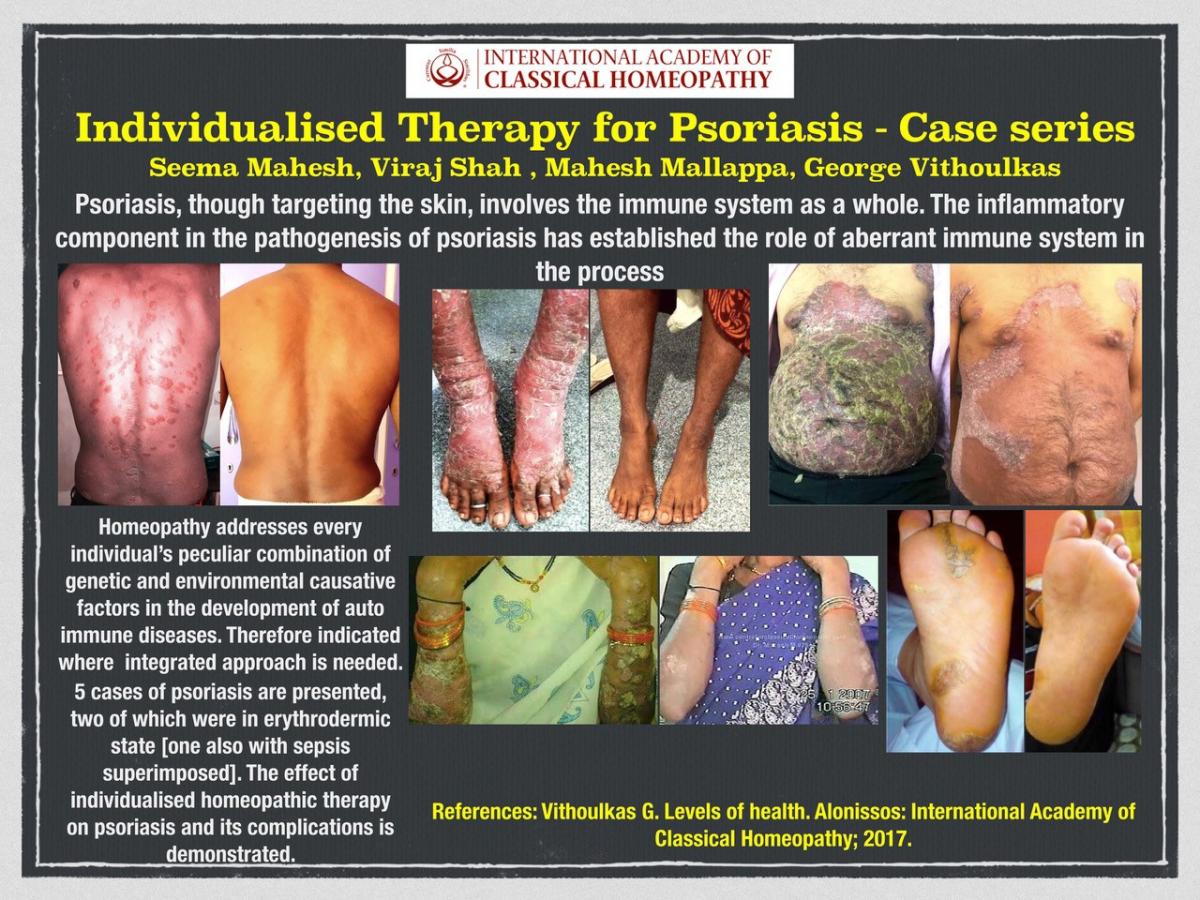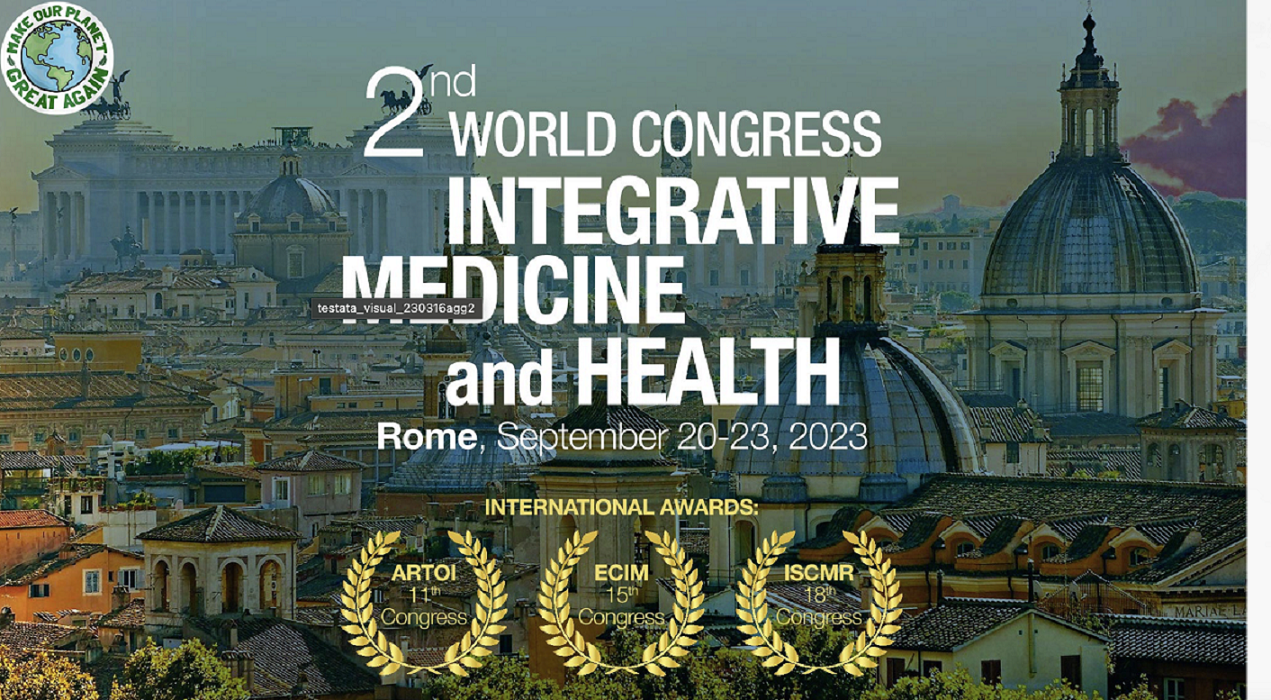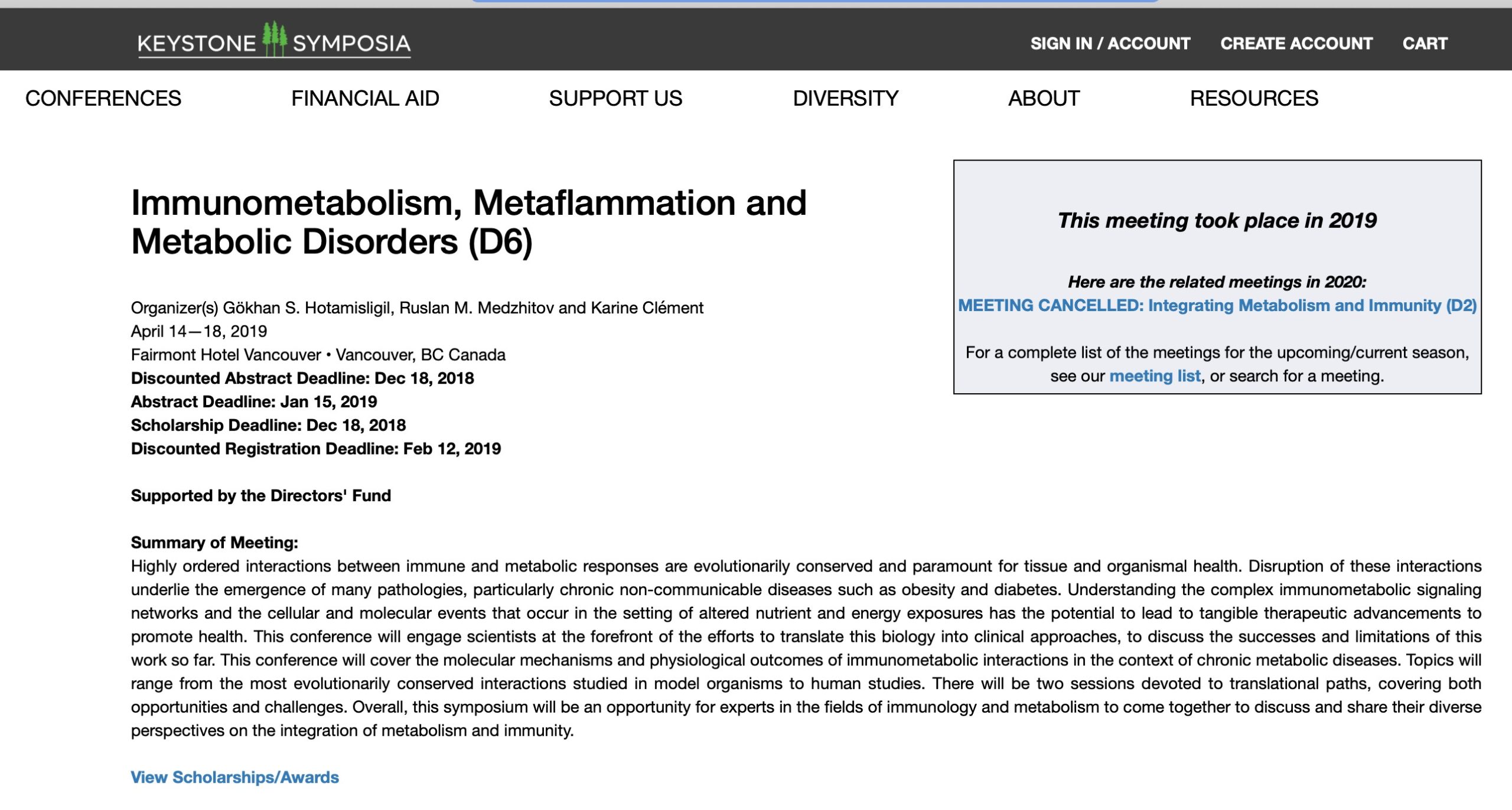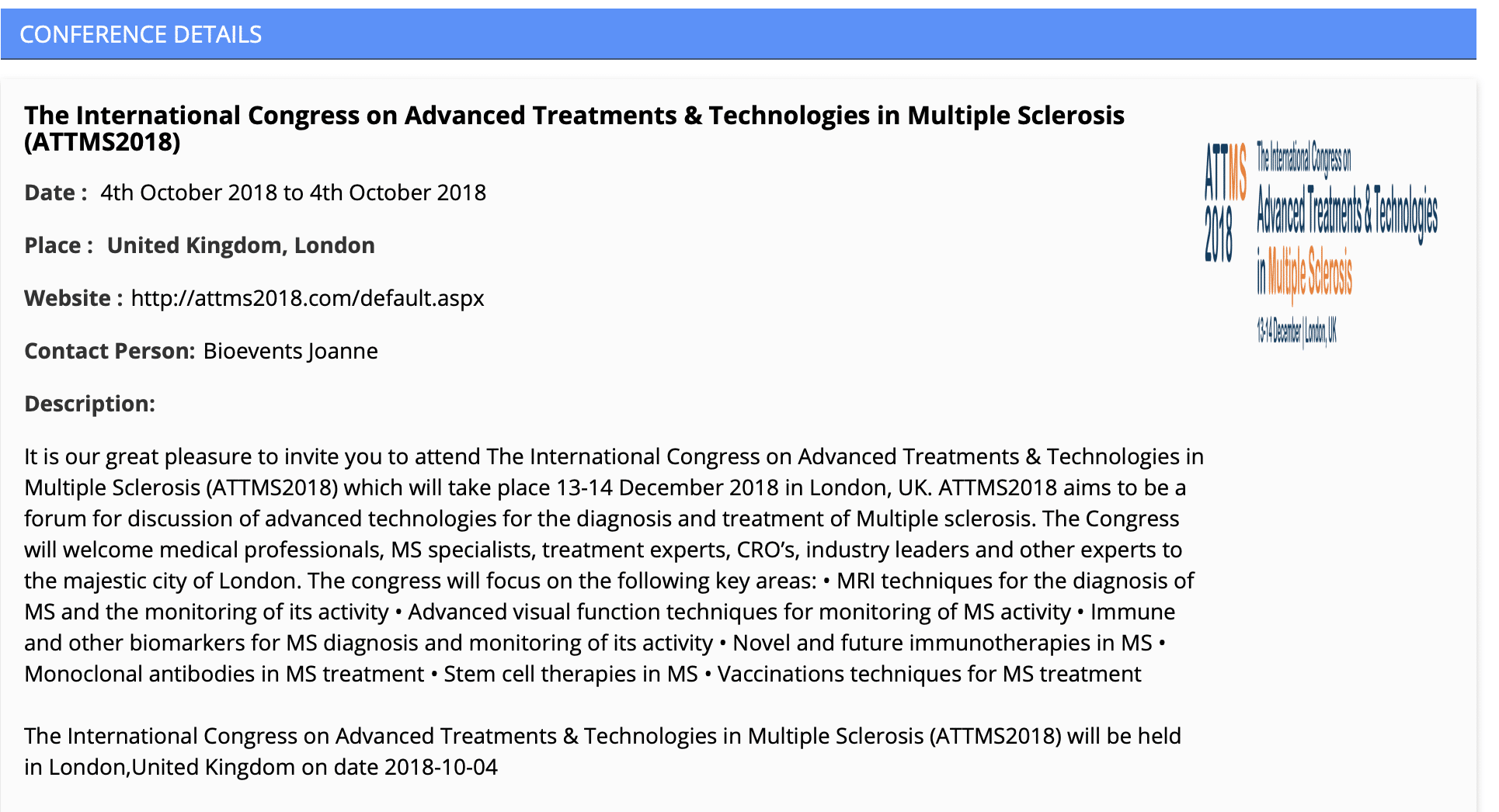INDIVIDUALISED THERAPY FOR PSORIASIS – CASE SERIES
Seema Mahesh 1, Viraj Shah 2, Mahesh Mallappa 1, George Vithoulkas 3
1 Centre For Classical Homeopathy, 2 Shah Homeopathic Clinic, 3 International Academy of Classical Homeopathy
Introduction: Psoriasis and its complications are still a challenge to clinicians. The autoimmune disorder though targeting the skin, involves the immune system as a whole. The inflammatory component in the pathogenesis of psoriasis has further established the role of aberrant immune system in the process [1, 2, 3].
Homeopathy addresses every individual’s peculiar combination of genetic and epigenetic causative factors in the development of such auto immune diseases [4, 5]. Therefore it may be considered as a therapy where integrated approach is indicated.
Case series: 5 cases of psoriasis are presented, two of which were in erythrodermic state [one also with sepsis superimposed]. Through monitoring of blood markers and documenting on photos and videos the effect of individualised homeopathic therapy on psoriasis and its complications is demonstrated. The theory of Levels of Health can explain the variety in the presentation of psoriasis and response to treatment in terms of the time taken and number of remedies required. The same theory also helps to assess the prognosis and comprehend the response to treatment [LOH]. With the help of the evidence of these cases we may formulate a larger study to ascertain the extent to which classical homeopathy may be employed in psoriasis.
Conclusions: These cases depict the potential for homeopathy in alleviating the suffering of patients with psoriasis if applied as individualised therapy and give grounds to further conduct controlled studies to confirm the role of homeopathy in psoriatic therapy.
References:
1. Boyd A, Menter A. Erythrodermic psoriasis. Journal of the American Academy of Dermatology. 1989;21(5):985-991.
2. Chandra A, Ray A, Senapati S, Chatterjee R. Genetic and epigenetic basis of psoriasis pathogenesis. Molecular Immunology. 2015;64(2):313-323.
3. Reich K. The concept of psoriasis as a systemic inflammation: implications for disease management. Journal of the European Academy of Dermatology and Venereology. 2012;26:3-11.
4. Vithoulkas G, Tiller W. The science of homeopathy. Athens: International Academy of Classical Homeopathy; 2009.
5. Vithoulkas G. Levels of health. Alonissos: International Academy of Classical Homeopathy; 2017.













